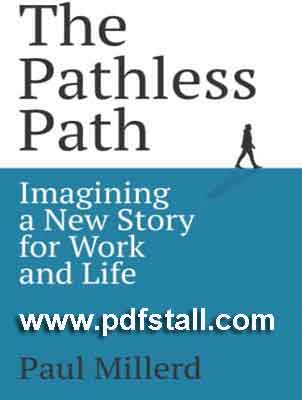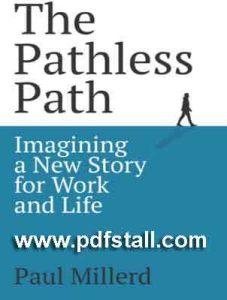
Book Title: The Pathless Path
Author: Paul Millerd
Category: Psychology
Book Descriptions:
 The Pathless Path by Paul Millerd is a refreshing take on self-improvement and personal growth, offering a new way of thinking about success and fulfillment. The book explores the idea that there is no one “right” path to happiness and success and encourages readers to find their own way.
The Pathless Path by Paul Millerd is a refreshing take on self-improvement and personal growth, offering a new way of thinking about success and fulfillment. The book explores the idea that there is no one “right” path to happiness and success and encourages readers to find their own way.
One of the key messages of the book is that there is no one-size-fits-all approach to personal growth. Many popular self-help books promote a specific set of habits or routines that are supposed to lead to success and happiness, but Millerd argues that these approaches are often overly prescriptive and fail to take into account individual differences and contexts.
Instead, The Pathless Path advocates for a more flexible and adaptable approach to personal growth. The book encourages readers to experiment with different strategies and find what works for them, rather than blindly following someone else’s advice.
Another important theme in the book is the idea that success and fulfillment are not necessarily the same thing. Many people pursue success in the form of money, status, or career advancement, but these achievements may not bring true happiness or meaning to their lives.
Millerd encourages readers to think deeply about their values and priorities and to consider alternative definitions of success. For some people, success might mean living a simple and sustainable lifestyle, building strong relationships, or pursuing creative passions.
The book also explores the idea that personal growth is an ongoing process, rather than a destination to be reached. Millerd emphasizes the importance of continuous learning, growth, and self-reflection, and encourages readers to embrace uncertainty and change as opportunities for growth.
One of the most unique aspects of The Pathless Path is its focus on the role of community in personal growth. Millerd argues that we cannot achieve our goals and fulfill our potential in isolation and that we need the support and guidance of others to thrive.
The book offers practical advice for building and maintaining a supportive community, including tips for networking, finding mentors, and connecting with like-minded individuals. Millerd also emphasizes the importance of giving back to one’s community and contributing to a larger purpose, as a way of finding greater meaning and fulfillment in life.
Overall, The Pathless Path is a thought-provoking and inspiring book that offers a refreshing perspective on personal growth and fulfillment. Rather than promoting a one-size-fits-all approach, the book encourages readers to find their own way and experiment with different strategies.
Millerd’s emphasis on community and continuous learning also sets the book apart from other self-help guides and provides a valuable reminder that personal growth is not just an individual pursuit, but a collective endeavor.
In addition to its insightful ideas, The Pathless Path is also very well-written and engaging. Millerd’s writing is clear, concise, and often quite poetic, and the book is filled with memorable quotes and thought-provoking anecdotes.
The book’s only potential downside is that some readers may find it a bit too abstract or philosophical. While Millerd offers practical advice for personal growth, the book is primarily focused on exploring larger ideas and concepts.
However, for readers who are open to a more abstract approach to personal growth, The Pathless Path is an excellent resource that offers a wealth of insights and inspiration. Whether you are just starting your personal growth journey or are looking for new ideas and perspectives, this book is definitely worth checking out.
Another important aspect of The Pathless Path is the idea that personal growth is a deeply personal and subjective experience. Millerd acknowledges that what works for one person may not work for another and that each individual’s journey toward fulfillment will be unique.
Rather than offering a step-by-step guide to success, the book encourages readers to cultivate self-awareness and develop their own sense of intuition and judgment. This approach emphasizes the importance of trusting oneself and one’s own instincts, rather than relying solely on external sources of guidance.
OR
[N.B: We are not the actual owner of this Book, we are just sharing this book for Educational purposes. If there is any copyright claim then the Content will be removed. Please mail to info@pdfstall.com for claim]
